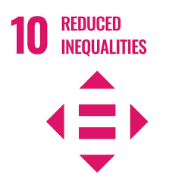All the SDGs are really important but for the purpose of this course, we identify six SDGs (5,6,10,11,16, 17) that are particularly pertinent when considering CS activities - and provide their context (UN and global development, EU, ECSA and Citizen Science). Most relevant within the context of CS and the role of volunteers in monitoring wells, rivers and rainfall are SDG’s 5, 10, 16 and 17. Goal 16 promotes peaceful and inclusive societies, providing access to justice for all and building effective, accountable and inclusive institutions at all levels. Goal 17 aims to strengthen the means of implementation and revitalise the global partnership for sustainable development. Finally, as citizen science relies on partnerships between the public and state, civil society, academic and/or private sector actors, it can help to strengthen collaboration, share knowledge and build capacity among these sectors, all key elements of SDG 17 (West and Pateman 2017).
We ask whether and in what ways CS might better align with the SDGs and contribute to monitoring the environment and providing data – but also whether and in what ways a lens on CS might add value to the SDGs and provide a ‘missing link’ for development. In considering the SDGs we decide which ones matter when it comes to CS – and vice versa how CS matters when contextualising SDGs on the ground. As the work by West and Pateman (2017) claims - as well as producing useful data, this kind of data collection could encourage citizens to adopt more water-efficient behaviours, by raising their awareness of the issues, giving them a sense of ownership and encouraging them to reflect on potential solutions - and this is highly relevant to SDG 6 as well as SDG 10.
These goals provide an opportunity to demonstrate the strong value‐added that volunteerism brings as an integrating mechanism that helps people and institutions better connect in partnerships of mutual benefit and allowing synergies or complementarity towards common goals/targets and indicators. SDG Goal 10 to reduce inequality, is particularly pertinent to many volunteer groups and within the context of our concerns around research integrity, ethics, CS and the SDGs, might be considered a priority.

There is increasing recognition of the potential role of citizen science in realizing the SDGs. A number of organizations focused on data requirements for sustainable development have highlighted the potential of citizen science. The Eye on Earth Alliance, for example, has called for citizen science to be used to fill gaps in data required to measure progress towards the SDGs. Academics have also called for the mobilization of citizens to track sustainability and generate data where official statistics are missing (West and Pateman 2017). This is in line with our own concerns about the hydrological data void in the Limpopo where CS are providing data about remote rural wells that would otherwise be completely inaccessible.